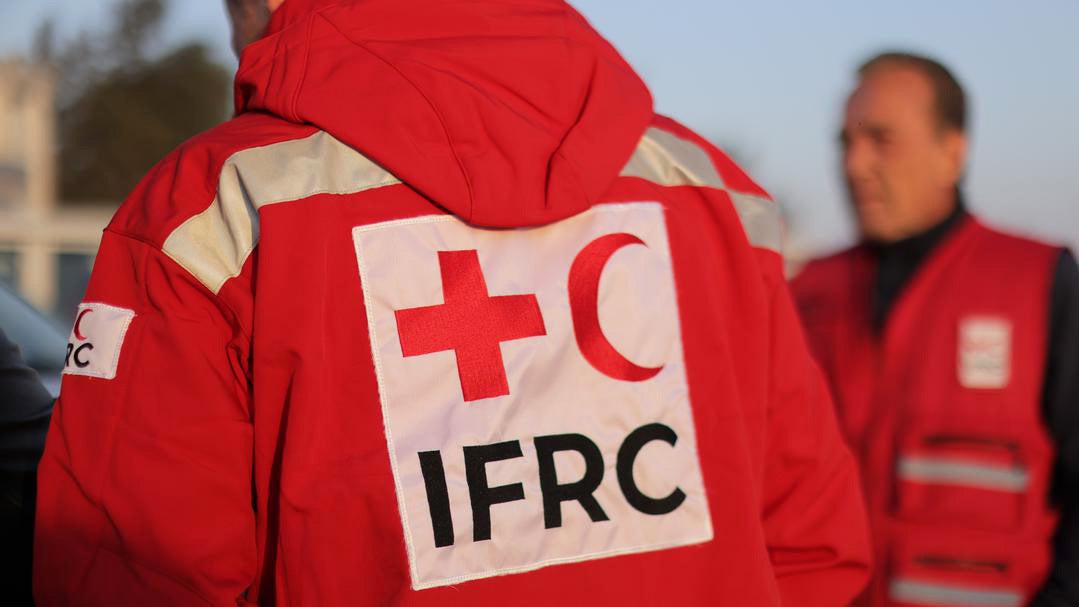IFRC and Georgetown Global Health Center Create Research-based Collaboration

Posted in News Release | Tagged Center for Global Health Science and Security, global health, infectious disease, International Federation of Red Cross and Red Crescent Societies
Media Contact
Karen Teber
km463@georgetown.edu
WASHINGTON (October 6, 2023) — The International Federation of Red Cross and Red Crescent Societies (IFRC) and Georgetown University’s Center for Global Health Science and Security (GHSS) today announce a new collaboration aimed at harnessing each organization’s strengths with the goal to alleviate or prevent human suffering caused by threats from infectious diseases.
The IFRC, a humanitarian network comprising 191 Red Cross and Red Crescent Societies, operates in nearly every country across the globe and is dedicated to preventing and alleviating human suffering. GHSS, an integral part of Georgetown University Medical Center, develops evidence for action, providing decision-makers with the tools they need to build sustainable capacity for preventing, detecting and responding to public health and humanitarian emergencies.
Together, IFRC and GHSS will collaborate to improve how community evidence can be gathered and applied to inform effective humanitarian action.
“While our organizations will help lead this effort, we have come to understand that during public health emergencies, an outbreak response functions best when people are heard, seen and represented and are able to represent themselves,” says GHSS member Sharon Abramowitz, PhD, associate research professor at Georgetown.
The organizations have outlined four primary objectives for their collaboration:
- To jointly fundraise, design and implement research initiatives that are localized and aligned with community needs and priorities to support operational planning and strategies.
- To collaboratively develop scientifically tested tools, frameworks and plans that allow IFRC society members to generate data, track evidence, and measure the impact of community engagement and accountability.
- To enhance capacities in operational research, data collection, analysis and the translation of data into action using diverse data, evidence, and information garnered at the community level and beyond.
- To actively advocate for coordination and create an enabling environment that values community engagement and social science evidence in the public health and humanitarian agenda.
Melker Mabeck, director of Strategic Partnerships and Resource Mobilization at the IFRC, says the collaboration will allow the organizations to connect science, policy and practice to ensure the best stewardship of limited resources. “Building trust and engaging local communities is essential in preventing and ending epidemics, helping people during humanitarian emergencies, and addressing the challenges posed by climate change, including natural disasters,” says Mabeck.
